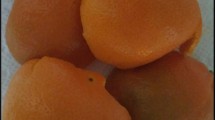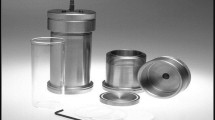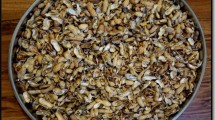Abstract
Drilling fluid conventional additives have severe drawbacks on the environment and personnel safety. Biodegradable environmentally friendly alternatives will eliminate these drawbacks. In this study, the food waste of potato peel powder is proposed as a biodegradable alternative drilling fluid additive. Full-set measurements of laboratory tests were conducted to evaluate the influence of adding diverse concentrations of potato peel powder on the entire specifications of drilling fluids. A reference mud sample was made, and different concentrations of potato peel powder additives were added to different samples, and measurements were taken using mud balance, viscometer, low-pressure and low-temperature filter press, chemical titration, and other standard drilling fluid laboratory equipment. All results were recorded and compared to the reference mud sample. The findings showed that potato peel powder has tangibly enhanced the viscosity components by decreasing the yield point and gel strength and increasing the plastic viscosity of the drilling fluid. Potato peel powder revealed the feasibility to be invested as a filtration control additive as it mitigated the fluid loss and improved the filter cake thickness. Potato peel powder increased the sodium chloride and reduced the resistivity, alkalinity, and calcium ions with very little effect on mud weight and solid content. All the tests showed that potato peel powder can be used as an alternative to non-biodegradable additives such as resinex to enhance drilling fluid properties while protecting the environment and personnel.


















Similar content being viewed by others
References
Adebowale A, Raji J (2015) Local content supplements as an alternative to imported corrosion control additives for drilling mud treatment (a case study of the use of burnt plantain and banana peels. In: Proceedings of the international academic conference for sub-sahara african transformation and development, vol 3
Al-Hameedi AT, Alkinani HH, Dunn-Norman S, Flori RE, Hilgedick SA, Amer AS, Alsaba M (2018) Mud loss estimation using machine learning approach. J Pet Explor Prod Technol 9(2):1339–1354. https://doi.org/10.1007/s13202-018-0581-x
Al-Hameedi AT, Alkinani HH, Dunn-Norman S, Alshammari AF, Albazzaz HW, Alkhamis MM, Mutar RA (2019a) Insights into the application of new eco-friendly drilling fluid additive to improve the fluid properties in water-based drilling fluid systems. J Pet Sci Eng. https://doi.org/10.1016/j.petrol.2019.106424
Al-Hameedi ATT, Alkinani HH, Dunn-Norman S, Al-Alwani MA, Alshammari AF, Alkhamis MM, Al-Bazzaz WH (2019b) Experimental investigation of environmentally friendly drilling fluid additives (mandarin peels powder) to substitute the conventional chemicals used in water-based drilling fluid. J Pet Explor Prod Technol. https://doi.org/10.1007/s13202-019-0725-7
Al-Hameedi ATT, Alkinani HH, Dunn-Norman S, Alashwak NA, Alshammari AF, Alkhamis MM, Ashammarey A (2019c) Evaluation of environmentally friendly drilling fluid additives in water-based drilling mud. Soc Pet Eng. https://doi.org/10.2118/195510-ms
Al-Hameedi AT, Alkinani HH, Dunn-Norman S, Albazzaz HW, Alkhamis MM (2019d) Missouri University of Science and Technology. Insights into eco-friendly and conventional drilling additives: applications, cost analysis, health, safety, and environmental considerations. In: Society of petroleum engineers, SPE symposium: Asia Pacific health, safety, security, environment and social responsibility held in Kuala Lumpur, Malaysia, 23–24
Alkinani HH, Al-Hameedi AT, Dunn-Norman S, Flori RE, Alsaba MT, Amer AS, Hilgedick SA (2019) Using data mining to stop or mitigate lost circulation. J Pet Sci Eng 173:1097–1108. https://doi.org/10.1016/j.petrol.2018.10.078
Amadi K, Alsaba M, Iyalla I, AlDushaishi Al-Hameedi AT, Alkinani HH (2018) Empirical studies of the effectiveness of bio-enhancers (food waste products) as suitable additives in environmental friendly drilling fluid systems. In: Paper AADE-18-FTCE-105, presented at the 2018 AADE fluids technical conference and exhibition held at the Hilton Houston North Hotel, Houston, Texas, April 10–11
Amanullah M (2007) “Screening and evaluation of some environment-friendly mud additives to use in water-based drilling muds.” In: SPE E&P environmental and safety conference, Galveston, Texas, USA. March 5–7
Amoco Production Company (1994) Drilling fluids manual
Arapoglou D, Varzakas Th, Vlyssides A, Israilides C (2010) Ethanol production from potato peel waste (PPW). Waste Manag 30(10):1898–1902, ISSN 0956-053X. https://doi.org/10.1016/j.wasman.2010.04.017
Basra Oil Company. Various daily reports, Final Reports, and Tests for 2006, 2007, 2008, 2009 and 2010, 2012, 2013, 2016, and 2019. Several Drilled Wells, Basra oil Fields, Iraq
Bezirhan Arıkan E, Bilgen H (2019) Production of bioplastic from potato peel waste and investigation of its biodegradability. Int Adv Res Eng J 3(2):93–97. https://doi.org/10.35860/iarej.420633
Bourgoyne AT, Millheim KK, Chenevert ME, Young FS (1986) Applied drilling engineering. Society of Petroleum Engineers
Gebrechristos HY, Chen W (2018) Utilization of potato peel as eco-friendly products: a review. Food Sci Nutr 6(6):1352–1356. https://doi.org/10.1002/fsn3.691
Halliburton (2018) Products data sheet. http://www.halliburton.com/. Accessed 25 Oct 2019
Hughes B (2010) Specialty products: drilling fluids solution. http://www.bakerhughes.com/news-and-media/resources/brochures/specialty-products-brochure. Accessed 24 Oct 2019
Iheagwara O (2015) Comparative analysis of the use of banana peels and NaOH in Ph control in Nigerian clays. J Niger Assoc Math Phys 30:197–202
Iranwan S, Azmi A, Saaid M (2009) Corn cobs and sugar cane waste as viscosifier in drilling fluid. Pertanika J Sci Technol 17:173–181
MI-Drilling Fluids (2000) Drilling fluids manual
Newpark Drilling Fluids (2012) Products data sheet. http://www.newpark.com/capabilities/newpark-drilling-fluids/united-states/about-us/product-bulletins. Accessed 22 Oct 2019
Nmegbu J, Bekee BA (2014) Evaluation of corn cob cellulose and its suitability for drilling mud formulation. J Eng Res Appl 4:112–117
Nyeche W, Nmegbu J, Ifeoma P (2015) Drilling mud formulation using potato starch (Ipomoea batatas). J Eng Res Appl 5:48–54
Okon AN, Udoh FD, Bassey PG (2014) Evaluation of rice husk as fluid loss control additive in water-based drilling mud. Soc Pet Eng. https://doi.org/10.2118/172379-MS.August5
Omotioma M, Ejikeme PCN, Mbah GO (2014) Comparative analysis of the effects of cashew and mango extracts on the rheological properties of water based mud. J Eng Res Appl 4:6–56
Schlumberger Company (2019) Oilfield Glossary. https://www.glossary.oilfield.slb.com/en/Terms/l/lignosu-lfonate.aspx. Accessed 11 Dec 2019
Acknowledgements
The authors wish to thank all who assisted in conducting this work.
Author information
Authors and Affiliations
Corresponding author
Additional information
Editorial responsibility: M. Abbaspour.
Rights and permissions
About this article
Cite this article
Al-Hameedi, A.T., Alkinani, H.H., Dunn-Norman, S. et al. Proposing a new biodegradable thinner and fluid loss control agent for water-based drilling fluid applications. Int. J. Environ. Sci. Technol. 17, 3621–3632 (2020). https://doi.org/10.1007/s13762-020-02650-y
Received:
Revised:
Accepted:
Published:
Issue Date:
DOI: https://doi.org/10.1007/s13762-020-02650-y




